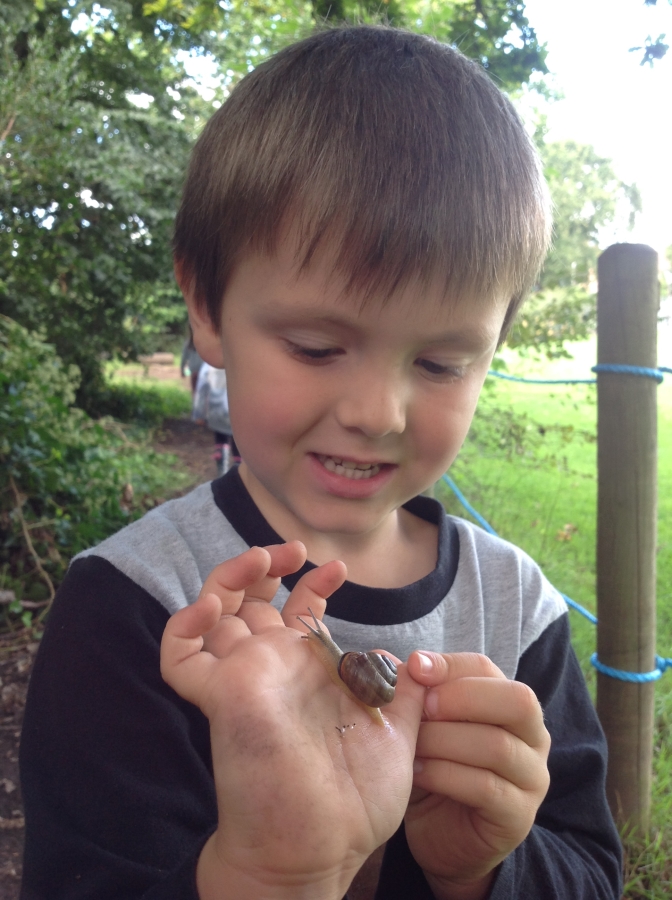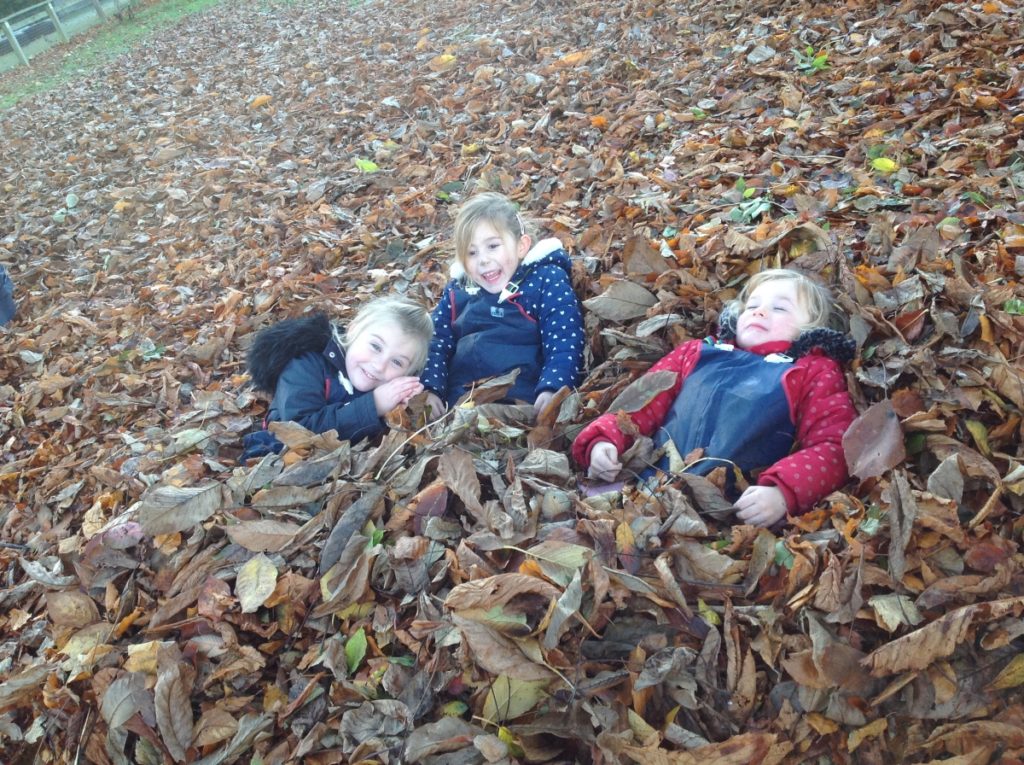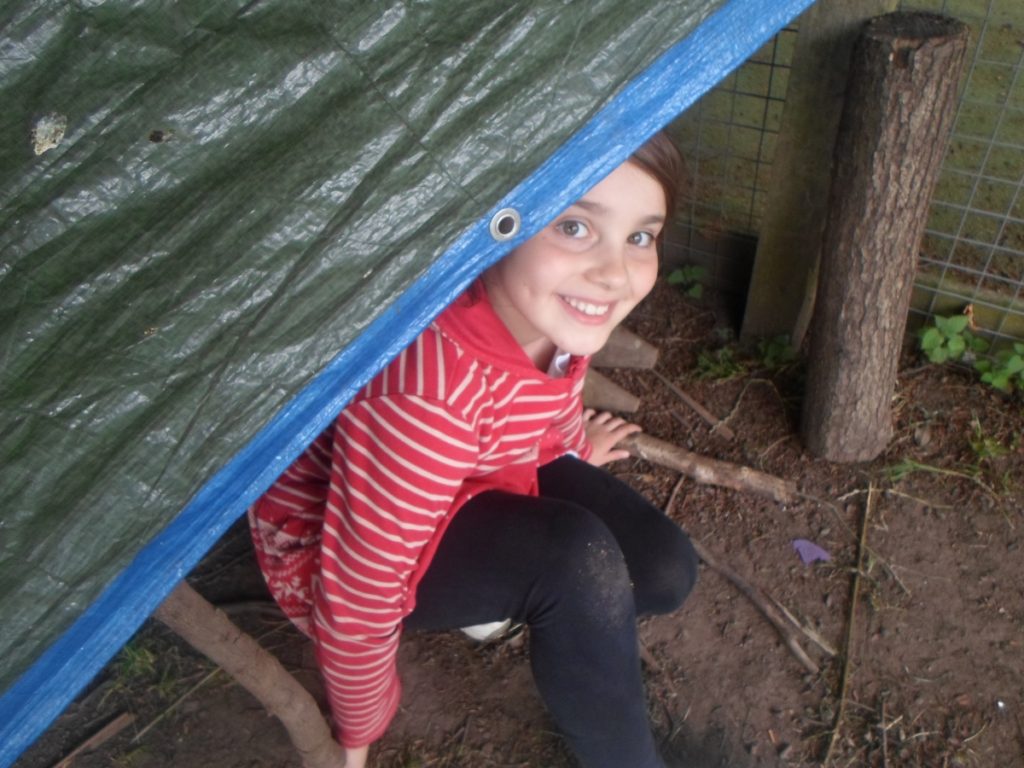High priority is given to outdoor learning at Pitmaston. As part of this provision, Forest School is organised for Reception classes on a weekly basis and other classes throughout the school on a three-week cycle.
Staffing, Activities and Facilities
Sessions are led by qualified level 3 Forest School Leaders, who have undergone at least 200 hours of study to achieve the qualification. Mrs. Hillyard is a Level 3 leader and she works with at least one other adult to provide a quality experience. Den building, lighting fires and using knives for whittling are common experiences so the training involves gaining a rigorous approach to risks, as well as a deep understanding of how children learn. An emphasis is also placed on how to support them in building confidence, resilience, independence, teambuilding, sensitivity and creativity, traits that are going to be needed for children’s future personal and professional lives. Being a large school, we have a specially designated site within our own grounds.
The Learning Process
The Forest School approach to learning in the outdoors is rooted firmly in the key progressive education theorists of the past one hundred and fifty years – from Froebel to Steiner, Vygotsky to Montessori, Dewey to Gardner – all of them put the child at the centre of their own learning; all talk of the importance of children being allowed to explore the world with appropriate support. Forest School encourages children to explore their own innate learning in the richest classroom we have – the outdoors. Current curriculum topics, such as ‘Classification’ in Science and ‘Rivers’ in Geography are linked into our customised sessions.
Forest school addresses many of the issues highlighted by recent research: children
- need to be more active
- need to be better risk takers and self-managers of risk
- need more independence in own learning
- need more play, especially outdoors
- should be allowed to think creatively outside the norm
- should have real life experiences
Purpose and Benefits
Enjoyment and achievement
Our children love Forest School! It sets learning in a different context for our children, where they can undertake a range of practical activities (such as carving a mallet) and carry out achievable tasks (such as making a bow and arrow). At Forest School, children can develop their team working skills and also learn to become more independent. Children can become confident in using outdoor spaces and this can form the basis of a positive life-long relationship with natural spaces. The hot chocolate and marshmallows cooked on an open fire certainly contribute to the children’s enjoyment! Children can become confident in using outdoor spaces and this can form the basis of a life-long relationship with natural spaces.
Making a positive contribution and promoting healthy lifestyles
At Forest School, children are physically active a lot of the time and their stamina improves as they go through their Forest School sessions. It also helps children to develop their self-confidence and self-esteem. As they become familiar with Forest School, they can take their new-found confidence into their academic work and into other areas of their lives. It helps them to successfully deal with significant life changes and challenges. Thus it contributes not only to children’s physical health but also their mental and emotional well-being.
Forest School can be particularly effective for children who can struggle in the classroom environment and children who have additional needs. Children have the chance to make new friends, to learn to solve problems and be creative and imaginative, thus showing enterprising behaviour!






